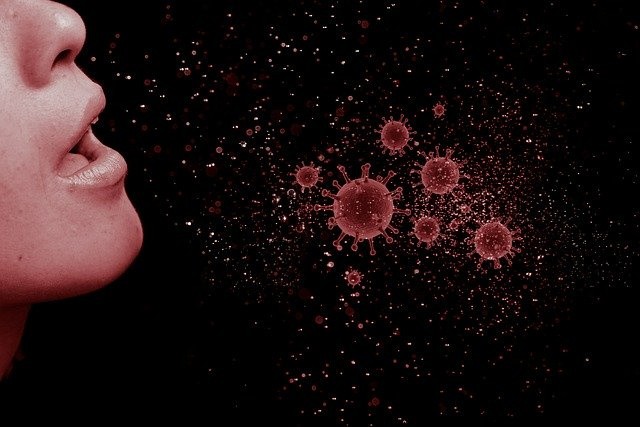
One of the most prolific modern pandemics, the coronavirus will redefine how we deal with a deadly pathogen. Although we can't find the exact cure yet, it is still important to know how it affects the body.
When you feel sick with fever, cough, shortness of breath, flu or just the common cold, you have to observe yourself and eat healthy food. Whatever the symptoms you feel, whether its coronavirus or not, these conditions may lead to death of the host because the pathogen takes over. The person's condition also depends on the degree of infection.
How does coronavirus cause infection?
Everything starts by how the coronavirus gets into your system since the first incidence of the ways the virus can literally overload once the initial infection plots a person's degradation or improvement.
The virus is more virulent than ever and it can invade the system. A sneeze or a cough, and even a wheeze can release the viral bodies into the air.
Next is the virulent pathogens gets breathed in, the droplets will go to the nasal passages, nose and the eyes. They make a beeline and latch to the back of the throat.
Once the spike of the virus shell stick on, the viral proteins will convert the host cell into viral cells and 'hijack it' 100%.
How does the virus cause respiratory problems?
As the COVID-19 controls and becomes dominant in the host cells, the victim is now stuck with a sore throat, also dry cough. But, the victim does not know his system is now in danger from the contagion.
The slow march of the virus down to the bronchial tubes will cause the inflammation of the lungs. Infected tissue destroys the lung's ability to process oxygen, which is blocked by the inflamed tissues.
A combination of low oxygen flow, lung parts have fluid, added pus and dead cells inside make it hard to breathe. Now, the victim has life-threatening pneumonia, the worse may happen yet as the coronavirus affects the body badly.
How does it infect the lungs?
According to Dr Shu-Yuan Xiao, a professor of pathology at the University of Chicago School of Medicine, coronaviruses begin in the peripheral areas on either side of the lungs. It takes time to reach the upper respiratory tract, trachea, and central airways.
The victim is now having a hard time, and may be gasping for air. Without oxygen, host cells die as well as the organisms. He added that it was the deadly pattern at Wuhan, before identified but most victims died.
These symptoms were under detected and the infected went home without taking any step to kill the virus. Later, dozens and thousands were infected or dead.
Patients had normal CT scans and developed 'ground glass opacities' that was a sign of respiratory infection, added by the researchers at the Icahn School of Medicine at Mount Sinai who found out this condition.
Infection gets worse than the lungs and can be fatal
According to Dr Compton-Phillips, the mutated cells will range from the nose to the rectum. Even if the lungs are not infected, the coronavirus will control and multiply in the gastrointestinal system, causing diarrhea or indigestion, and can affect the bloodstream and anti-bodies that will attack healthy tissue, said Dr Schaffner.
There is debate if stool or blood can carry the virus.
Expect more effects when bone marrow, and the liver become inflamed too, added Dr George Diaz, section leader for infectious diseases at Providence Regional Medical Center in Everett, Wash.
Victims are now compromised: 50/50 survival
Before even surviving the coronavirus and how it affects the body, organs like the heart, kidney, and liver will have tissue damage. Even if the immune system tries to kill the coronavirus, it will trigger a series of organ failure and might kill the host organism.
Related article : Coronavirus Airborne? Increased Chances of Infection Possible
© 2026 HNGN, All rights reserved. Do not reproduce without permission.








